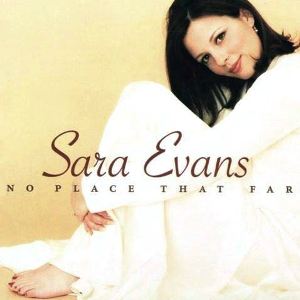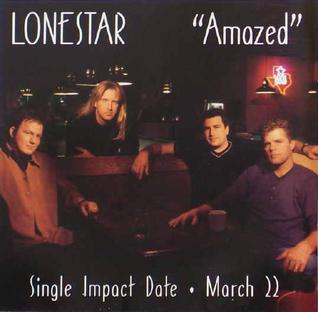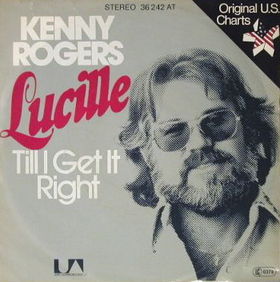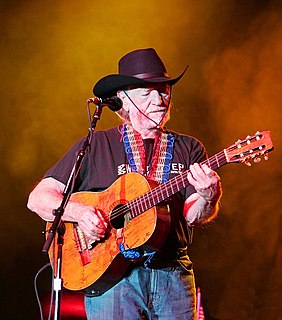Related Research Articles

Hal Michael Ketchum was an American country music artist. He released eleven studio albums from 1986 to 2014, including nine for divisions of Curb Records. Ketchum's 1991 album Past the Point of Rescue was his most commercially successful, having been certified gold by the Recording Industry Association of America. Between 1991 and 2006, Ketchum had 17 entries on the Billboard Hot Country Songs charts, including three that reached No. 2, "Small Town Saturday Night", "Past the Point of Rescue", and "Hearts Are Gonna Roll". Ketchum's music is defined by his songwriting and folk music influences. Ketchum retired from the music business in 2019 following a diagnosis of dementia.

"No Place That Far" is a song co-written and recorded by American country music singer Sara Evans. It was released in September 1998 as the second single and title track from her album of the same name. It was her first Top 40 single on the Hot Country Songs chart, as well as her first number one hit. An acoustic version of "No Place That Far" without backing vocals was included on Evans' compilation album Feels Like Home. Evans wrote this song with Tom Shapiro and Tony Martin.

"Amazed" is a power ballad by American country music group Lonestar, released on March 22, 1999, for country radio and on December 13 of that same year for pop radio as the second single from their third studio album Lonely Grill (1999). It is the band's longest-lasting number one single and biggest hit, spending eight weeks at the top of the Billboard country chart. The song was written by Marv Green, Aimee Mayo, and Chris Lindsey. A remix of the song was released in December 1999, and reached number one on the Billboard Hot 100 and number 2 on the Hot Adult Contemporary Tracks charts in 2000. The song has sold over 1,650,000 digital copies in the US as of February 2016.

"Don't Make Me Over" is a song written by Burt Bacharach and Hal David, originally recorded by Dionne Warwick in August 1962 and released in fall 1962 as her debut single. The song reached number 21 on the US Billboard Hot 100 and number five on the Billboard Hot R&B Singles chart. It was also a top-forty hit in Canada, reaching number 38. Various covers of the song have been made. Brenda & The Tabulations hit #15 on the R&B charts with their cover in 1970. Jennifer Warnes recorded a version which reached number 67 on the Billboard Hot 100 in 1979, and in 1989, Sybil released a successful dance cover of the song, that was a number-one hit in New Zealand.
"Stay Forever" is a song co-written and recorded by American country music artist Hal Ketchum. It was released in January 1995 as the third single from his album Every Little Word. The song reached number 8 on the Billboard Hot Country Singles & Tracks chart in May 1995. It was written by Ketchum and Benmont Tench.

"Lucille" is a song written by Roger Bowling and Hal Bynum, and recorded by American country music artist Kenny Rogers. It was released in January 1977 as the second and final single from the album Kenny Rogers. It became Rogers' first major hit as a solo artist after leaving the successful country/rock group The First Edition the previous year. An international hit, it reached number 1 on the Billboard Country Singles chart and number 5 on the Billboard Hot 100. Overseas, "Lucille" reached the top of the UK Singles Chart in June 1977, the first of Rogers' two number one singles there.

"Don't Pull Your Love" is a song written by Brian Potter and Dennis Lambert and originally released in 1971 by Hamilton, Joe Frank & Reynolds.
"Heaven's Just a Sin Away" is a song composed by Jerry Gillespie, which was recorded in 1977 by The Kendalls. Released in 1977, the song went to number one on the Billboard Hot Country Singles charts. It was the duo's first top-40 entry on that chart, and the second single from the album "Let the Music Play / Heaven's Just a Sin Away", released on Ovation. It also reached number 69 on the Billboard Hot 100.
"Drive South" is a song written by John Hiatt, and recorded by him on his 1988 album Slow Turning. The song was later recorded by Kelly Willis on her 1990 debut album, Well Travelled Love. Neither versions were released as singles.
"Hearts Are Gonna Roll" is a song co-written and recorded by American country music artist Hal Ketchum. It was released in February 1993 as the second single from his album Sure Love. The song reached number 2 on the Billboard Hot Country Singles & Tracks chart in May 1993. It was written by Ketchum and Ronny Scaife.

"Can't You See" is a song written by Toy Caldwell of The Marshall Tucker Band. The song was originally recorded by the band on their 1973 debut album, The Marshall Tucker Band, and released as the album's first single. It was re-released in 1977 and peaked at number 75 on the Billboard Hot 100. Cover versions of "Can't You See" have charted for Waylon Jennings and the Zac Brown Band with Kid Rock (2010).
"Any Old Wind That Blows" is a song recorded by American country music artist Johnny Cash. It was released in November 1972 as the third single from his album Any Old Wind That Blows. The song peaked at number 3 on the Billboard Hot Country Singles chart. It also reached number 1 on the RPM Country Tracks chart in Canada. The song was written by Dick Feller.
"What Is Truth" is a song written and recorded by American country music artist Johnny Cash released in February 1970. Generally viewed as a protest song, a rarity in country music at the time, its criticism of the Vietnam War and the generation gap made the song a major crossover hit. The song peaked at number 3 on the Billboard Hot Country Singles. It also became Cash's 12th Top 40 single on the Hot 100 chart, peaking at number 19, and his 2nd Top 10 single on the Adult Contemporary chart, peaking at Number 4. It also reached number 1 on the RPM Country Tracks chart in Canada, and number 21 on the UK Singles Chart. Cash played this song in front of Richard Nixon in the White House on April 17, 1970.
"The Days of Sand and Shovels" is a song written by Doyle Marsh and George Reneau, and recorded by American country music artist Waylon Jennings. It was released in April 1969 as the second single from his compilation album The Best of Waylon Jennings. The song peaked at number 20 on the Billboard Hot Country Singles chart. It also reached number 1 on the RPM Country Tracks chart in Canada.
"Give Me Forty Acres " is a single by American country music group The Willis Brothers. Released in 1964, it was the first single from their album Give Me Forty Acres. The song peaked at number 9 on the Billboard Hot Country Singles chart. It also reached number 1 on the RPM Country Tracks chart in Canada.
"Please Talk to My Heart" is a single by American country music artist Johnny "Country" Mathis. It was released in 1963, and peaked at number 14 on the Billboard Hot Country Singles chart.
"Someplace Far Away " is a song written and recorded by American country music artist Hal Ketchum. It was released in September 1993 as the fourth and final single from his album Sure Love. The song reached number 24 on the Billboard Hot Country Singles & Tracks chart but it peaked at number 6 on the Canadian RPM Country Tracks.

The following is a detailed discography of all singles released by country music singer Willie Nelson. A total of 25 Nelson singles have reached number one on music charts.

Charley is a studio album by American country music artist Charley Pride. It was released in May 1975 via RCA Victor Records and was produced by Jack Clement. The record was Pride's twentieth studio album released in his career and contained a total of ten tracks. The album included two singles which became major hits that year on the country chart: "I Ain't All Bad" and "Hope You're Feelin' Me ."
References
- ↑ "RPM Country Singles for November 30, 1964". RPM . Retrieved 31 March 2011.
- ↑ "Hal Willis singles". Allmusic . Retrieved 31 March 2011.
| | This 1960s country song-related article is a stub. You can help Wikipedia by expanding it. |